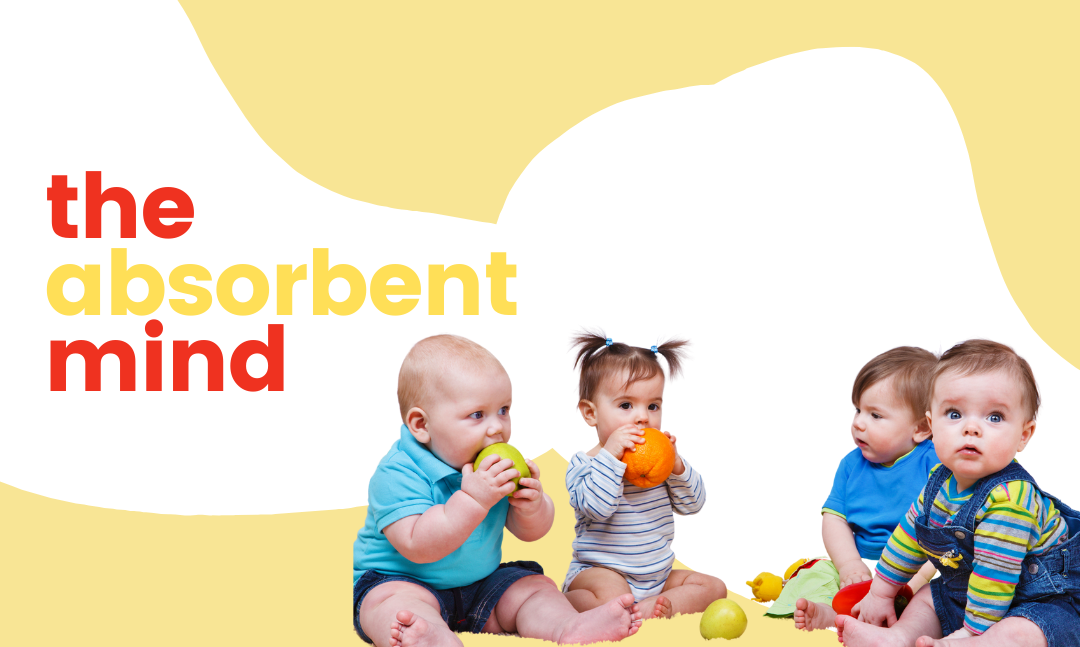The Montessori Method was developed at the turn of the century. During this time, Dr. Maria Montessori literally wrote the book(s) on childhood development and education. One of her most popular titles, “The Absorbent Mind” outlines beautifully what she uncovered about teaching our youngest children. But because of the time in which it was written, uncovering the meaning behind the terminology is challenging.
Before you assume the absorbent mind is edu-speak that doesn’t apply to you, we encourage you to pause! The absorbent mind is an important concept that can help parents, caregivers and loved ones approach early childhood education differently.
What is the absorbent mind?
The absorbent mind is less of a “thing” and more of a stage of development. Dr. Montessori classified the ages between birth and 6 years old as the absorbent mind – or a time when learning is less of an activity and more of a state of being. Children in this age range are constantly learning. The entire world is new to them, so every interaction is a new discovery.
If you’ve ever spent time with a young child, you’re acutely aware of their ability to pick up on new ideas or actions. They approach things with wonder, asking a lot of “why” questions and paying close attention to your every move. This is how they discover the world, learn about themselves and understand their place.
How does the absorbent mind play into the Montessori Method?
The absorbent mind doesn’t need formalized lessons or rigid instruction to learn. The entire idea behind the absorbent mind is that young children learn through experiencing the world and interacting with objects. So, in the Montessori Method, primary and elementary environments are less structured than traditional American schools. To foster learning, materials are carefully curated and spread throughout the environment, encouraging exploration, observation and interaction. Through these processes, students uncover the same lessons that are found in textbooks.
How can I support my child who is in the absorbent mind age range?
There is a lot of pressure to provide children the best opportunities to succeed. This can lead to caregivers feeling stressed to purchase specialized materials, enroll children in courses or attend a new cultural event every weekend. There is nothing wrong with doing these things. But when you feel anxious, overwhelmed or like you’re not doing enough, remember the absorbent mind. Your young child learns through doing and experiencing life with you. They can learn amazing lessons at the children’s museum, but they can also learn lessons by splashing in a puddle in the backyard. Time spent at the farmer’s market is enlightening, but so is exploring colors in the crayon box at home. Education in this age range doesn’t have to be highly planned, expensive or tedious for caregivers. Instead, focus on spending time with your child and explaining what you’re doing.

